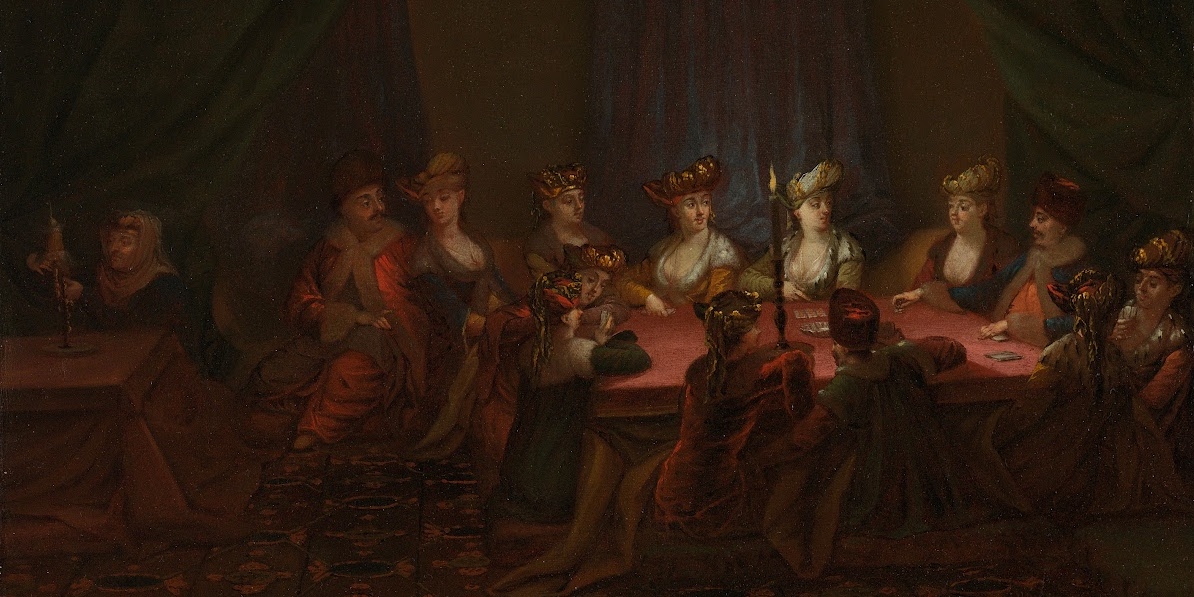Italian Empire and the Dodecanese
Episode 476
The Dodecanese Islands in the Southeastern Aegean Sea are part of Greece today, and for centuries, they were controlled by the Ottoman Empire. But for a brief period, Italy governed the Dodecanese as part of its empire under the Fascist government of Mussolini. In this podcast, we talk to historian Valerie McGuire about the history of Italian Empire and the ignored importance of the Dodecanese Islands within the study of colonialism writ large. We explore how the islands changed under Italian rule and the creation of a special nationality known as Italian Aegean Citizenship. We also discuss the legacy of the islands beyond the amnesia and nostalgia concerning Italy's imperial impact on the Mediterranean region.
 | Click for RSS Feed | 
|

|
Contributor Bios
 |
Valerie McGuire is a Lecturer of Italian and Comparative Literature at the University of St Andrews (Scotland). Her research investigates colonialism, postcolonialism and Mediterraneanism in Italian history and culture. She received her PhD from New York University and is the author of Italy's Sea: Empire and Nation in the Mediterranean, 1894-1945 (Liverpool University Press, 2020).
|
 |
Chris Gratien is Assistant Professor of History at University of Virginia, where he teaches classes on global environmental history and the Middle East. He is currently preparing a monograph about the environmental history of the Cilicia region of the former Ottoman Empire from the 1850s until the 1950s. |
Further Listening
 |
William Granara | 452
2/27/20
|
Muslim Sicily and Its Legacies |
 |
Antonis Hadjikyriacou | 284
11/29/16
|
Insularity and Empire in Ottoman Cyprus |
 |
Jasmin Daam, Esther Möller, Cyrus Schayegh, Selim Deringil | 467
7/18/20
|
The Mediterranean Viewed from the Southern Shore |
 |
Devin Naar | 314
5/19/17
|
Jewish Salonica and the Greek Nation |
 |
Molly Greene | 217
12/18/15
|
Greeks in the Ottoman Empire |
Credits
Episode No. 476
Release Date: 13 September 2020
Recording Location: Berkeley, CA / Syracuse, NY
Music and Audio Elements (by order of appearance): "Rhodes"; Kai Engel - Illumination; A.A. Aalto - Entonces; Soularflair - Slow Gentle Solo Piano; "Ethiopia - Italian Advance"; Aitua - IV Volcano; A.A. Aalto - Side Story; Chad Crouch - Taut; "Mussolini Speaking - 1929"; Kai Engel - Dark Alleys; Chad Crouch - Lollygag; Chad Crouch - Charcoal; Aitua - Blind Fire
Release Date: 13 September 2020
Recording Location: Berkeley, CA / Syracuse, NY
Music and Audio Elements (by order of appearance): "Rhodes"; Kai Engel - Illumination; A.A. Aalto - Entonces; Soularflair - Slow Gentle Solo Piano; "Ethiopia - Italian Advance"; Aitua - IV Volcano; A.A. Aalto - Side Story; Chad Crouch - Taut; "Mussolini Speaking - 1929"; Kai Engel - Dark Alleys; Chad Crouch - Lollygag; Chad Crouch - Charcoal; Aitua - Blind Fire
Sound production by Chris Gratien
Additional credits to Sam Dolbee and Reem Bailony
Bibliography and images courtesy of Valerie McGuire
Additional credits to Sam Dolbee and Reem Bailony
Bibliography and images courtesy of Valerie McGuire
Images

Greek woman in traditional dress encounters Italian tourist in the island of Rhodes, ca 1930. Promotional photo for the Italian imperial administration of the island ã Touring Club Italiano. Source: Photographic archive of the Italian administration of the Aegean islands, Touring Club Italiano

Italians and Greeks join hands and dance together in Rhodes during a harvest festival organized by the Fascist administration of the island, ca 1930. Promotional photo for the Italian imperial administration of the island. Source: Photographic archive of the Italian administration of the Aegean islands, Touring Club Italiano
Bibliography
Ballinger, Pam. The World Refugees Made. Ithaca: Cornell University Press, 2020.
Ben-Ghiat, Ruth, and Mia Fuller, eds. Italian Colonialism. New York: Palgrave and MacMillan, 2005.
Clementi, Marco, and Ireni Toliou. Gli ultimi ebrei di Rodi: Leggi raziali e deportazioni nel Dodecaneso italiano, 1938–1948. Roma: DeriveApprodi, 2015.
Doumanis, Nicholas. Myth and Memory in the Mediterranean: Remembering Fascism’s Empire. New York: St. Martin’s Press, 1997.
Dickie, John. Darkest Italy: The Nation and Stereotypes of the Mezzogiorno, 1860–1900. New York: Palgrave MacMillan, 2016.
Hirschon, Renée. “The Jews of Rhodes: The Decline and Extinction of an Ancient Community.” In The Last Ottoman Century and Beyond: The Jews in Turkey and the Balkans, 1808–1945, edited by Minna Rozen, 291–307. Tel Aviv: Tel Aviv University, 2002.
Hirschon, Renée, ed. Crossing the Aegean: An Appraisal of the 1923 Compulsory Population Exchange between Greece and Turkey. New York: Bergahn Books, 2003.
Maglio, Emma. “The Changing Role of Historic Town of Rhodes in the Scenario of Ottoman and Italian Rules in the Light of the Iconographic Sources.” Eikonocity 1, no. 1 (2016): 75–88.
McElligott, Anthony. “The Deportation of the Jews of Rhodes, 1944: An Integrated History.” In The Holocaust in Greece, edited by Giorgos Antoniou and Dirk Moses, 58–86. Cambridge: Cambridge University Press, 2018.
McGuire, Valerie. “An Imperial Education for Times of Transition: Conquest, Occupation, and Civil Administration of the Southeast Aegean.” In Italy in the Era of the Great War, edited by Vanda Wilcox, 145–63. Leiden: Brill, 2018.
———. “Italian Identity, Global Mediterranean: Heritage and the Cultural Politics of Tourism in the Aegean.” In Transcultural Italies: Mobility, Memory and Translation, edited by Loredana Polezzi, Charles Burdett, and Barbara Spadaro. Liverpool: University of Liverpool Press, 2020.
Pergher, Roberta. Mussolini’s Nation-Empire: Sovereignty and Settlement in Italy's Borderlands, 1922–1943. Cambridge: Cambridge University Press, 2018.
Rappas, Alexis. “Greeks under European Colonial Rule: National Allegiance and Imperial Loyalty.” Byzantine and Modern Greek Studies 34, no. 2 (2010): 201–18.
———. “The Transnational Formation of Imperial Rule on the Margins of Europe: British Cyprus and the Italian Dodecanese in the Interwar Period.” European History Quarterly 45, no 3 (2015): 467–505.
Rodogno, Davide. Fascism’s European Empire: Italian Occupation during the Second World War. Cambridge: Cambridge University Press, 2006.











Comments
Post a Comment
Due to an overwhelming amount of spam, we no longer read comments submitted to the blog.